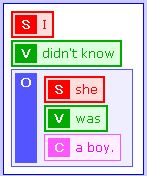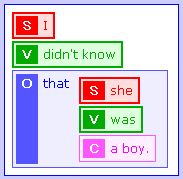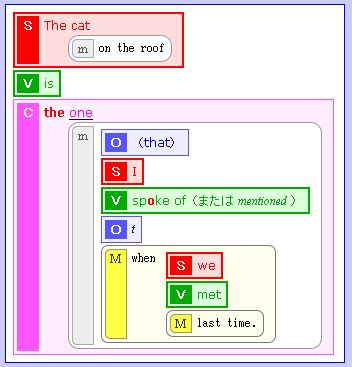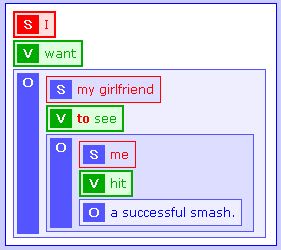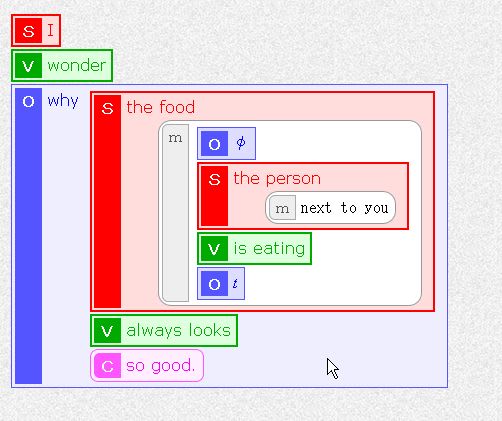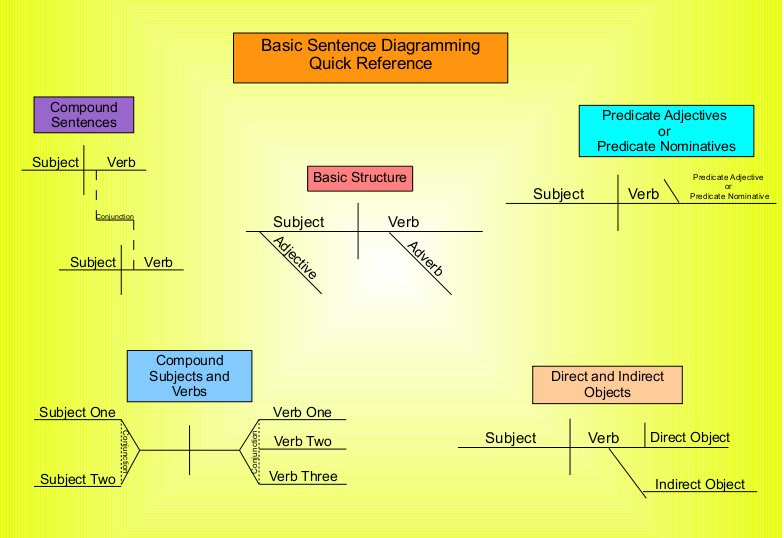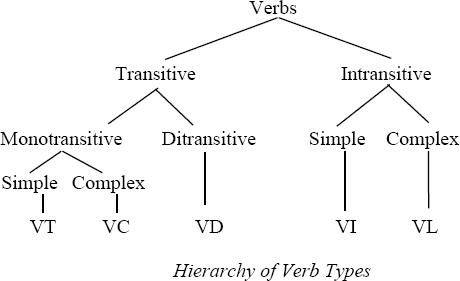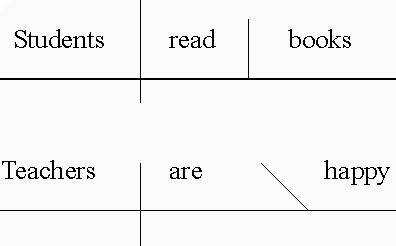東洋大学 渡辺満久 教授
・大飯原発近くの活断層
・活断層の真上に原子炉
・敷地内に活断層がある原発
・「私の責任で」
・美浜原発40年超えても運転容認
・保安院の調査
・活断層を見つけるのは地震学者ではない
・活断層を見つける専門家は地理学科・地形学にいる
・活断層地図の信頼性
・データはまず、電力会社から
・活断層を認めない保安院
「原発と活断層~その実態を聞く」
驚愕!地震学者と変動地形学者(活断層のプロ)の違い!
変動地形学者(活断層のプロ)が、
保安院の側には不在のまま原発の安全審査が進められてきていたという恐ろしい事実!
2012年06月06日【水】原発と活断層~その実態を聞く・東洋大学 渡辺満久
活断層と破砕帯:渡辺満久・杉山雄一・遠田晋次・中田高
渡辺満久:弱面は活断層ではないというあり得ない論理
http://waiwaienglish.com/preposition-1890.html
【英文解釈技術の100】文の主要素の把握【直訳・語句】【英文構造】
out / up / for / on / down / about / of / in / off / to / over / with / into / from / through / around / at / across / by / along / upon / toward / within
Simon's Cat in 'Springtime'
carry out /
アクセントcárry óut
《 【他動詞】+ 【副詞】》
[carry+out+ 【名詞】] 〈…を〉成し遂げる; 実行する, 執り行なう.
用例
carry out one's intention (of doing) (…をしようとする)もくろみを成し遂げる.
point out /
アクセントpóint óut
《 【他動詞】+ 【副詞】》
(1) 〈…を〉〔…に〕指示[指摘]する 〔to〕.
用例
Point out any errors to me. 誤りがあったら何なりと指摘してください.
(2) 〈…ということを〉指摘する 〈that〉.
用例
I pointed out that the account had still not been settled. 勘定がまだすんでいないことを指摘した.
(3) 〈…かを〉指摘する 〈wh.〉.
用例
He pointed out how important it is to observe law. 彼は法を守ることはいかに大切かを指摘した.
find out /
アクセントfínd óut
《 【他動詞】+ 【副詞】》
(1) [find+out+ 【名詞】] (調査などをして)〈…を〉見つけ出す, 発見する; 〈答えなどを〉考え出す; 〈なぞを〉解く 《★【比較】 find out は調査・観察の結果見つけ出すことなので, 探して〈人・ものを〉見つけ出す時は用いない; cf. find 【他動詞】 1》.
用例
find out a person's address 人の住所を調べて見つける.
(2) 〈…ということを〉知る, 見つけ出す, 発見する 〈(that)〉.
用例
I found out that there's going to be a sale next week. 来週特売があることを知った.
(3) 〈…かを〉知る, 見つけ出す, 発見する 〈wh./wh. to do〉.
用例
We found out where he lives. 彼がどこに住んでいるかを突き止めた.
(4) [find+目+out] 〈…の〉正体[真意]を見抜く; 〈犯人を〉見つける; 〈不正・罪を〉見破る.
(5) [find+目+out] 〈罪などが〉〈その本人を〉暴露する, 〈…に〉報いをもたらす.
《 【自動詞】+ 【副詞】》
(6) 見つけ出す.
(7) 〔…について〕事実[真相]を知る 〔about〕.
用例
I went to the library to find out about wine making. ワイン造りのことを調べに図書館へ行った.
Betty Boop - Poor Cinderella - Color - 1934
come out /
アクセントcòme óut 音声を聞く
《 【自動詞】+ 【副詞】》
(1) 出てくる, 出る; 〈太陽・月などが〉現われる.
用例
The stars came out one by one. 星が一つまた一つと現われた.
(2) 〈くぎ・歯などが〉抜ける.
用例
Her baby teeth are coming out. 彼女の乳歯は抜けそうだ.
(3) 〈書物などが〉世に出る, 出版される.
用例
His book will come out next spring. 彼の本は来春出版される.
(4) 〈花が〉咲く; 〈木が〉葉を出す.
用例
The cherry blossoms come out early in April here. 当地の桜は 4 月早々に花が咲く.
(5) 〈ものごとが〉知れる, わかる; 〈意味が〉はっきりする.
用例
It came out that he was the murderer. 彼がその殺人犯であることがわかった.
(6) 〈本性などが〉現われる.
用例
His character comes out in everything he says. 彼の言うことのひとつひとつに彼の性格が出ている.
(7) (社交界・舞台に)初めて出る, デビューする.
(8) [well などの様態の副詞を伴って] 〈人が〉(写真に)うつる.
用例
She didn't come out well in this photo. 彼女はこの写真ではあまり引き立たなかった.
(9) 〈写真が〉現像される, 写っている.
用例
That picture didn't come out. その写真は写っていなかった.
(10) 〈算数の問題が〉解ける.
用例
I can't make this equation come out. この方程式が解けない.
(11) 〈経費が〉(総計)〔…に〕なる 〔at, to〕.
用例
The fare comes out to four dollars and fifty cents (at seventy‐five cents a mile). 料金は (1 マイル 75 セントで) 4 ドル 50 セントとなる.
(12) (試験で)〈…の〉成績をとる.
用例
I never expected to come out as high as I did. あんなよい成績をとれるとは夢にも思わなかった.
(13) 結果が〈…と〉なる.
用例
come out right in the end 結局うまくいく.
(14) 《主に英国で用いられる》 ストライキをやる.
用例
The printers have come out for higher pay again. 印刷工は賃上げを求めて再びストライキに入った.
(15) 〈しみが〉抜ける.
用例
That stain won't come out. そのしみは抜けません.
(16) 〈染色などが〉あせる, 消える.
用例
After a few washings the colors began to come out. 何度か洗濯した後は色があせ始めた.
The Legend of Korra Theme-Opening
work out /
アクセントwórk óut
《 【自動詞】+ 【副詞】》
(1) 次第に出てくる.
用例
Your shirt has worked out. シャツが出ているよ.
(2) 〈金額などが〉〔…に〕算定される 〔at, to〕.
用例
The cost worked out at £7 [to $20]. 費用は 7 ポンド[20 ドル]と算定された.
(3) 〈問題が〉解ける; 〈合計が〉出る.
用例
The sum won't work out. 合計がなかなか出ない.
(4) [通例様態の副詞(句)を伴って] 〈計画などが〉(うまく)いく; 結局(…と)なる.
用例
The plan will work out satisfactorily. その計画はうまくいくだろう.
(5) 〈ボクシングの選手が〉訓練する, 練習する; 運動をする.
用例
work out daily with sparring partners スパーリングの相手と連日トレーニングする.
《 【他動詞】+ 【副詞】》
(6) 〈計画などを〉(苦心して)作り出す; 〈問題などを〉解く; 〈計算を〉懸命にする (⇒work 【他動詞】 A4).
(7) 〈…を〉努力して理解する.
用例
work out the meaning of a poem 詩の意味を努力して理解する.
(8) 〈…を〉苦心して成就する.
(9) 《口語》〈人の〉正体[本当の姿]がわかる.
用例
I can't work Smith out. どうもスミスという人間がわからない.
go out / turn out / break out / rule out / set out / get out / figure out / run out / take out / put out
come up / set up / give up / pick up / make up / take up / end up / go up / grow up / build up / step up / open up / put up / break up / stand up
call for / look for / go for / head for / pay for / work for / ask for / vote for / wait for / prepare for / run for / fight for / apply for / know for / account for
Lutins
http://www.eigoraku.com/target/targetv1.html
http://www.google.com/intl/ja/enterprise/apps/business/#utm_campaign=ja&utm_source=ja-ha-ct&utm_medium=ha
http://kouzouzu.web.fc2.com/kzzlinks.htm
Haoma
・大飯原発近くの活断層
・活断層の真上に原子炉
・敷地内に活断層がある原発
・「私の責任で」
・美浜原発40年超えても運転容認
・保安院の調査
・活断層を見つけるのは地震学者ではない
・活断層を見つける専門家は地理学科・地形学にいる
・活断層地図の信頼性
・データはまず、電力会社から
・活断層を認めない保安院
「原発と活断層~その実態を聞く」
驚愕!地震学者と変動地形学者(活断層のプロ)の違い!
変動地形学者(活断層のプロ)が、
保安院の側には不在のまま原発の安全審査が進められてきていたという恐ろしい事実!
2012年06月06日【水】原発と活断層~その実態を聞く・東洋大学 渡辺満久
活断層と破砕帯:渡辺満久・杉山雄一・遠田晋次・中田高
渡辺満久:弱面は活断層ではないというあり得ない論理
http://waiwaienglish.com/preposition-1890.html
【英文解釈技術の100】文の主要素の把握【直訳・語句】【英文構造】
out / up / for / on / down / about / of / in / off / to / over / with / into / from / through / around / at / across / by / along / upon / toward / within
Simon's Cat in 'Springtime'
carry out /
アクセントcárry óut
《 【他動詞】+ 【副詞】》
[carry+out+ 【名詞】] 〈…を〉成し遂げる; 実行する, 執り行なう.
用例
carry out one's intention (of doing) (…をしようとする)もくろみを成し遂げる.
point out /
アクセントpóint óut
《 【他動詞】+ 【副詞】》
(1) 〈…を〉〔…に〕指示[指摘]する 〔to〕.
用例
Point out any errors to me. 誤りがあったら何なりと指摘してください.
(2) 〈…ということを〉指摘する 〈that〉.
用例
I pointed out that the account had still not been settled. 勘定がまだすんでいないことを指摘した.
(3) 〈…かを〉指摘する 〈wh.〉.
用例
He pointed out how important it is to observe law. 彼は法を守ることはいかに大切かを指摘した.
find out /
アクセントfínd óut
《 【他動詞】+ 【副詞】》
(1) [find+out+ 【名詞】] (調査などをして)〈…を〉見つけ出す, 発見する; 〈答えなどを〉考え出す; 〈なぞを〉解く 《★【比較】 find out は調査・観察の結果見つけ出すことなので, 探して〈人・ものを〉見つけ出す時は用いない; cf. find 【他動詞】 1》.
用例
find out a person's address 人の住所を調べて見つける.
(2) 〈…ということを〉知る, 見つけ出す, 発見する 〈(that)〉.
用例
I found out that there's going to be a sale next week. 来週特売があることを知った.
(3) 〈…かを〉知る, 見つけ出す, 発見する 〈wh./wh. to do〉.
用例
We found out where he lives. 彼がどこに住んでいるかを突き止めた.
(4) [find+目+out] 〈…の〉正体[真意]を見抜く; 〈犯人を〉見つける; 〈不正・罪を〉見破る.
(5) [find+目+out] 〈罪などが〉〈その本人を〉暴露する, 〈…に〉報いをもたらす.
《 【自動詞】+ 【副詞】》
(6) 見つけ出す.
(7) 〔…について〕事実[真相]を知る 〔about〕.
用例
I went to the library to find out about wine making. ワイン造りのことを調べに図書館へ行った.
Betty Boop - Poor Cinderella - Color - 1934
come out /
アクセントcòme óut 音声を聞く
《 【自動詞】+ 【副詞】》
(1) 出てくる, 出る; 〈太陽・月などが〉現われる.
用例
The stars came out one by one. 星が一つまた一つと現われた.
(2) 〈くぎ・歯などが〉抜ける.
用例
Her baby teeth are coming out. 彼女の乳歯は抜けそうだ.
(3) 〈書物などが〉世に出る, 出版される.
用例
His book will come out next spring. 彼の本は来春出版される.
(4) 〈花が〉咲く; 〈木が〉葉を出す.
用例
The cherry blossoms come out early in April here. 当地の桜は 4 月早々に花が咲く.
(5) 〈ものごとが〉知れる, わかる; 〈意味が〉はっきりする.
用例
It came out that he was the murderer. 彼がその殺人犯であることがわかった.
(6) 〈本性などが〉現われる.
用例
His character comes out in everything he says. 彼の言うことのひとつひとつに彼の性格が出ている.
(7) (社交界・舞台に)初めて出る, デビューする.
(8) [well などの様態の副詞を伴って] 〈人が〉(写真に)うつる.
用例
She didn't come out well in this photo. 彼女はこの写真ではあまり引き立たなかった.
(9) 〈写真が〉現像される, 写っている.
用例
That picture didn't come out. その写真は写っていなかった.
(10) 〈算数の問題が〉解ける.
用例
I can't make this equation come out. この方程式が解けない.
(11) 〈経費が〉(総計)〔…に〕なる 〔at, to〕.
用例
The fare comes out to four dollars and fifty cents (at seventy‐five cents a mile). 料金は (1 マイル 75 セントで) 4 ドル 50 セントとなる.
(12) (試験で)〈…の〉成績をとる.
用例
I never expected to come out as high as I did. あんなよい成績をとれるとは夢にも思わなかった.
(13) 結果が〈…と〉なる.
用例
come out right in the end 結局うまくいく.
(14) 《主に英国で用いられる》 ストライキをやる.
用例
The printers have come out for higher pay again. 印刷工は賃上げを求めて再びストライキに入った.
(15) 〈しみが〉抜ける.
用例
That stain won't come out. そのしみは抜けません.
(16) 〈染色などが〉あせる, 消える.
用例
After a few washings the colors began to come out. 何度か洗濯した後は色があせ始めた.
The Legend of Korra Theme-Opening
work out /
アクセントwórk óut
《 【自動詞】+ 【副詞】》
(1) 次第に出てくる.
用例
Your shirt has worked out. シャツが出ているよ.
(2) 〈金額などが〉〔…に〕算定される 〔at, to〕.
用例
The cost worked out at £7 [to $20]. 費用は 7 ポンド[20 ドル]と算定された.
(3) 〈問題が〉解ける; 〈合計が〉出る.
用例
The sum won't work out. 合計がなかなか出ない.
(4) [通例様態の副詞(句)を伴って] 〈計画などが〉(うまく)いく; 結局(…と)なる.
用例
The plan will work out satisfactorily. その計画はうまくいくだろう.
(5) 〈ボクシングの選手が〉訓練する, 練習する; 運動をする.
用例
work out daily with sparring partners スパーリングの相手と連日トレーニングする.
《 【他動詞】+ 【副詞】》
(6) 〈計画などを〉(苦心して)作り出す; 〈問題などを〉解く; 〈計算を〉懸命にする (⇒work 【他動詞】 A4).
(7) 〈…を〉努力して理解する.
用例
work out the meaning of a poem 詩の意味を努力して理解する.
(8) 〈…を〉苦心して成就する.
(9) 《口語》〈人の〉正体[本当の姿]がわかる.
用例
I can't work Smith out. どうもスミスという人間がわからない.
go out / turn out / break out / rule out / set out / get out / figure out / run out / take out / put out
come up / set up / give up / pick up / make up / take up / end up / go up / grow up / build up / step up / open up / put up / break up / stand up
call for / look for / go for / head for / pay for / work for / ask for / vote for / wait for / prepare for / run for / fight for / apply for / know for / account for
Lutins
http://www.eigoraku.com/target/targetv1.html
http://www.google.com/intl/ja/enterprise/apps/business/#utm_campaign=ja&utm_source=ja-ha-ct&utm_medium=ha
http://kouzouzu.web.fc2.com/kzzlinks.htm
Haoma











